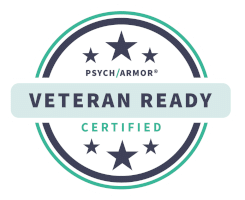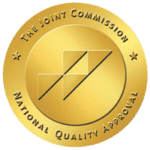As we celebrate National Nutrition Month throughout March, it is important to understand the importance of good nutrition to not only our physical health but also our mental health. Over 6.7% of American adults are affected by major depression each year, making it one of the most common mental illnesses. There are many contributing factors to depression, but did you know that poor nutrition can also play a role?
In fact, recent studies by Harvard Medical School concluded a clear connection between a poor diet and an increased risk of depression. “A dietary pattern characterized by a high intake of fruit, vegetables, whole grain, fish, olive oil, low-fat dairy and antioxidants and low intakes of animal foods was apparently associated with a decreased risk of depression. A dietary pattern characterized by high consumption of red and/or processed meat, refined grains, sweets, high-fat dairy products, butter, potatoes and high-fat gravy, and low intakes of fruits and vegetables is associated with an increased risk of depression,” stated experts.
What’s the brain-gut connection?
Does depression cause our brain to desire less healthy food or does eating less healthy food cause depressive symptoms? There is not an exact answer to this question, but studies do show a clear brain-gut connection. One area of impact is hippocampus, a key area involved in learning, memory, and mental health. People with healthy diets have more hippocampal volume than those without proper nutrition. We also know that serotonin, a neurotransmitter in our body is linked to our sleep, appetite, mood, and pain. Almost 95% of serotonin produced is in our gastrointestinal tract, which is filled with millions of nerve cells, making the inner workings of our digestive system and integral guiding force of our emotions. Lastly, our gut is full of trillions of good bacteria that fend off germs and keep our immune systems in check. Healthy bacteria also decrease inflammation in the body, which affects mood and cognition. A diet high in fat in sugar is bad for your gut health, and therefore, your brain.
What should I eat?
Choosing foods that are good for your mental health is the same as choosing foods that are good for your physical health. Processed, fried, and sugary foods have little nutritional value and can increase the risk of developing depression by as much as 60%. However, those who have diets consisting of whole foods such as fruits, vegetables, whole grains, legumes, fish and unsaturated foods are 35% less likely to develop depression.
Foods that are full of nutrients in as few calories as possible are key to a good nutrition plan. Some nutrients that are particularly helpful include:
- Vitamin B: Low B12 levels have been linked to low moods. Individuals with lower B12 levels have more brain inflammation and higher rates of depression.
- Iron: Iron deficiency or anemia has been linked to depression.
- Omega-3: A healthy fatty acid that improves thinking, memory and, possibly, mood.
- Zinc: This nutrient helps control how the body responds to stress. Low levels of zinc have been connected to depression.
- Vitamin D: Optimal brain functioning including mood and critical thinking improve with increased Vitamin D intake. Low levels of Vitamin D are linked to depression, including seasonal depression which typically occurs with reduced sunlight during the fall and winter months.
Also, include foods such as yogurt with live active cultures, kefir, and kimchi which provide good gut bacteria. Pay attention to the foods you eat and how they make you feel, even the next day. Cut processed foods and sugar from your diet for two weeks and see how your body reacts. You may notice a difference in how you feel.
Treatment for Depression
While a proper diet and good nutrition are important for mental health, sometimes depressive symptoms are severe enough to impede on daily functioning. When this happens, professional treatment may be needed.
At Pasadena Villa, we develop a customized treatment plan that begins with a comprehensive assessment that includes consultation with prior care managers, doctors, therapists, and family members. We use a wide variety of evidence-based therapeutic practices that help clients in consistently engaging in developing life skills, health and nutrition acumen, and social competencies with a goal of integrating back into their life outside of treatment.
We are committed to providing the highest quality service to our clients in a physical environment of care that promotes health, well-being, recovery, and personal motivation.





